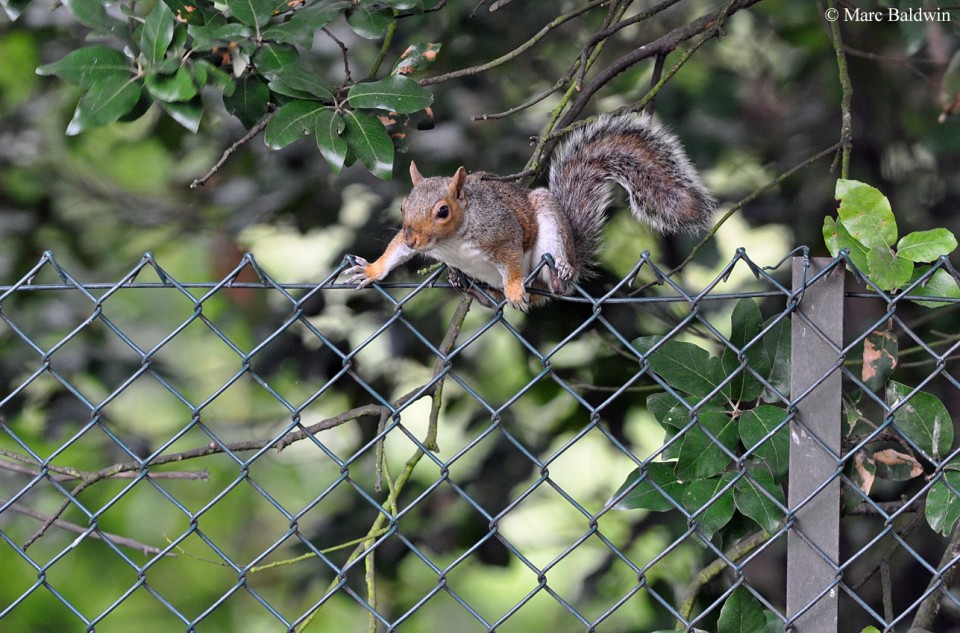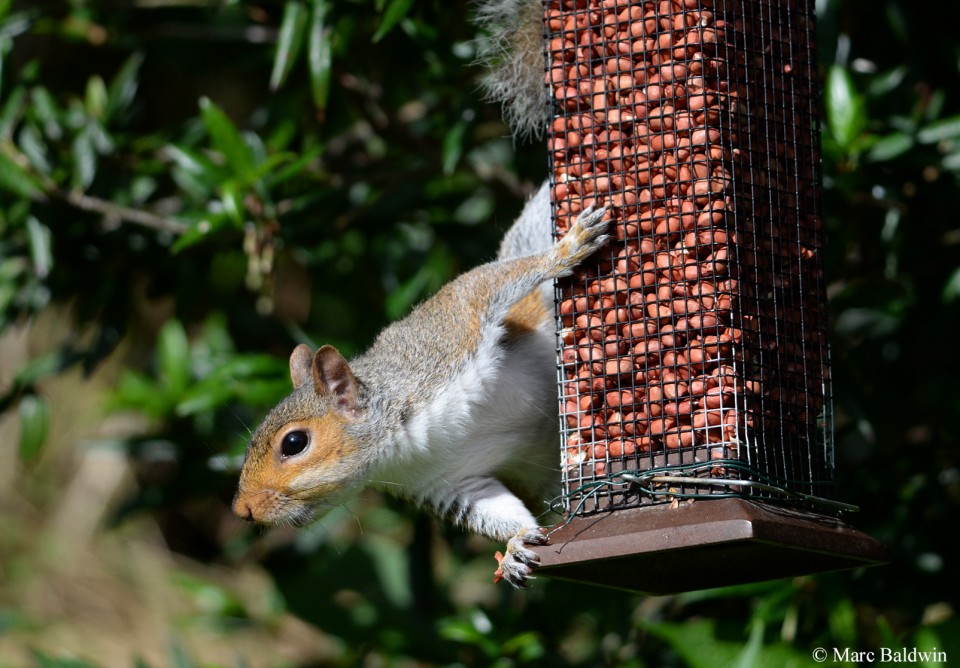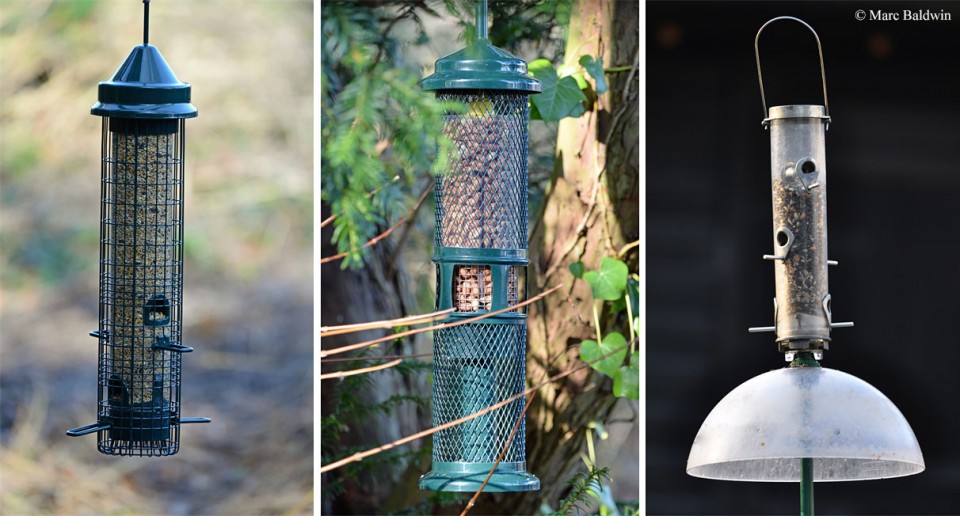Squirrel Interaction with Humans - Deterrents

Keeping squirrels off bird feeders and, more generally, out of your garden is an arguably impossible task. Squirrels are highly adaptable, athletic and intelligent and so quickly figure out even complicated and convoluted routes to food. Hobby squirrel tester Jason Konopack has spent years building obstacle courses for Greys visiting his yard in North America.
In his nine-step obstacle course Jason has shown just how agile and acrobatic squirrels can be, completing the obstacle course without breaking a sweat. Jason’s seen squirrels cheat and find short cuts that he constantly has to block. More interestingly, however, Jason has shown that squirrels learn from each other. Having completed most of the obstacle course, one squirrel watched another (smaller) individual find a short cut that involved climbing part of the way up a pole and jumping baffle to baffle to get at the nut feeder. On its next attempt, the first squirrel took the same route.

A recent study by a team of biologists at Exeter University and Penn State College of Medicine has demonstrated that squirrels are very flexible in their approach to finding food. The research, led by Pizza Ka Yee Chow at Exeter and published in the Journal of Experimental Psychology in 2015, found that, when presented with a puzzle box in various configurations, the squirrels went straight to the sections of the box they’d found treats in before; if they found it to be empty all bets were off and they started the puzzle from scratch.
There are various designs for ‘squirrel-proof’ bird feeders and baffles that can be effective, although there is some dependency on the configuration of the space in which it is located and the determination of the squirrel. Additionally, some ‘home remedies’ suggest coating nuts with chilli or mustard powder, which birds cannot taste, will dissuade squirrels. The addition of capsaicin, the active component in chili peppers that gives them their spiciness, to bird food has been trialled as a means of reducing visits by squirrels to feeders with reasonable success, although there has recently been some concern raised over potential side effects. Paul Curtis and his team (2000) and Christopher Fitzgerald and colleagues (1995) studied the impact of capsaicin addition to seed and suet, respectively. Both teams described squirrels rubbing their mouths on nearby objects after consuming treated seeds. Curtis and his co-workers also noted how squirrels would sometimes partially close their eyes while eating treated seed and "rub its ventral surface on the ground and roll over" once they'd left the feeder. There is some concern, however, that eye, mouth and paw damage may result from continued rubbing/licking triggered by the chemical and that other means of deterrence should be exhausted before considering such chemical treatments.
Some research has also gone into the potential of predator odours as a means of deterring squirrels and there are now various commercial repellents that work on this principle. During October 2000, Norwegian University of Science and Technology biologist Frank Rosell studied the response of Grey squirrels in Oakwood Cemetery in New York to various scents. Rosell found that his subjects could distinguish between predator (fox and raccoon) scent and that of non-predators (white-tailed deer, humans and water) and avoided areas tainted with the predator scent.
It is still unclear whether the squirrels avoided the predator scents because they feared predation or simply disliked the scent itself – if real terms, though, this is only a secondary concern, and the important outcome is that such scents appear to deter squirrels.

Note: "Squirrel-proof" bird feeders are available to purchase, with varying success, and former engineer and fox rehabilitator Mike Towler has designed a home-made version that he reports success with. Plans for Mike's feeder can be downloaded below.
Download: Squirrel-proof peanut feeder .pdf 367KB